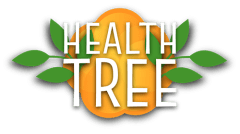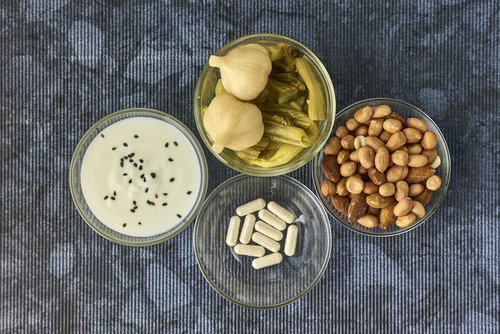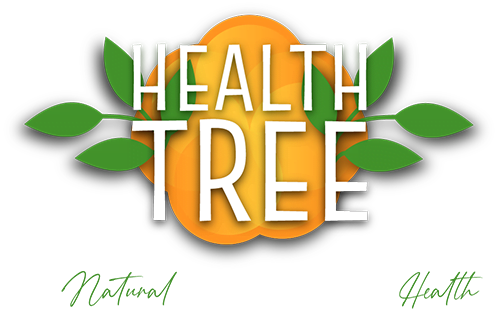In your intestines, millions of different bacteria are moving around, alive. These are also called gut flora, and researchers have been able to show that these gut bacteria are essential to good health. If you don’t have enough of them, you lose the balance of good and bad bacteria your body needs.
Bacteria living in your gut do more than just affect the health of your gut. They are responsible for the health of your entire embody. In order to enjoy great health, you need to make sure that you have the right balance of bacteria in your gut. Research has shown that the variety and quality of the bacteria make a difference in what state your health is in.
We realise now that gut bacteria don’t just hang out in the gut. They engage with your whole body in one way or another. For instance, if you eat mostly processed foods, then you will have a poor gut bacteria balance. The bad bacteria will take over. The effect this will have will not be limited to your gut.
We have known anecdotal evidence about bacteria for a very long time, but only recently has scientific research been able to back up our suspicions. A lot of ancient cultures believed that eating foods with high probiotic content was important to health, and we have found that to be true as well.
Many fermented foods like soy sauce, yogurt, sauerkraut and kimchi are ones that dieticians and doctors recommend to protect the gut. This is the same food that has been used as nourishment for the gut for generations. It’s not surprising to find it recommended as an integral part of a healthy diet now.
The notion of the gut affecting the health of other parts of the body is not a novel concept. Hippocrates, who is considered the founder of modern medicine, is reported to believe that all disease started in the gut.
Modern research has shown that a lot of chronic illnesses actually start there because the gut bacteria is imbalanced. Some types of gut bacteria have been shown to be connected to obesity, which means it would influence diabetes, heart disease, stroke and even some forms of cancer.
Probiotics are an important part of this conversation. They are the good bacteria we consume to help balance out our gut. What many people are not aware of, however, are prebiotics. These are made up of plant fibres that sustain the probiotics.
How do these two differ? We are going to show you that as well as illustrate how they are key to your health.
Prebiotics Examined
Most scientific material on bacteria over the past few years has favoured probiotics for good gut health over prebiotics. That’s not the whole story, however. Prebiotics play an equally important role in a healthy diet, and they can usually be found in foods that are rich in carbohydrates. Many food parts that your body cannot digest are able to feed probiotics.
A Look at Probiotics
The friendly, living bacteria probiotics are something that you can consume each day to maintain your health. Eating and drinking food and drink that are rich in probiotics will improve your energy levels, make your skin appear healthier and promote exceptional health.
Why do these need to be taken together?
By using probiotics and prebiotics in your diet, you can maximise the benefits of both and ensure that you have a healthy bacteria balance. The prebiotics feed the probiotics, and that increases how much good bacteria you have in your gut. With these two working together, you can greatly improve your overall health.
When you use prebiotics and probiotics, you can manage your weight much more easily. You will also feel like you have more energy and you will be more alert. Now let’s look at the foods that contain lots of prebiotics and probiotics.
Probiotic-Rich Foods
- Milk (alternately Water Kefir)- Water kefir is fermented and combines goat’s milk, cow’s milk, water and kefir grains.
- Sauerkraut- This food comes from cabbage and a variety of other veggies that have been fermented.
- Yogurt- The best type of yogurt for a probiotic-rich diet is goat’s milk yogurt.
- Pickles- This fermented treat can be made from any vegetable and not just cucumbers.
- Miso Soup- This soup is most commonly found in Japanese cuisine, and it comes from fermented grains and ryes.
- Kombucha Tea- This is a fermented tea.
- Kimchi- Fermented cabbage with spices, this delicacy is a stalwart of Korean cuisine.
- Apple Cider Vinegar
Prebiotic-Rich Foods
- Garlic
- Onions (or leeks)
- Chicory Root
- Jerusalem Artichoke
- Dandelion Greens
- Cocoa
- Apples
- Bananas
- Asparagus
- Barley (and Oats)
- Wheat Bran
- Flaxseed
- Seaweed
If you want to have better overall health, then improving your gut health is a great place to start. You need to know, though, that a combination of probiotics and prebiotics are necessary for a healthy gut bacteria balance.
You should always talk to your doctor before you start a new diet, particularly if you are being treated for a serious medical condition. If you are already on a diet that is rich in probiotics and prebiotics, then hopefully, this article gave you some additional information you will find helpful.



